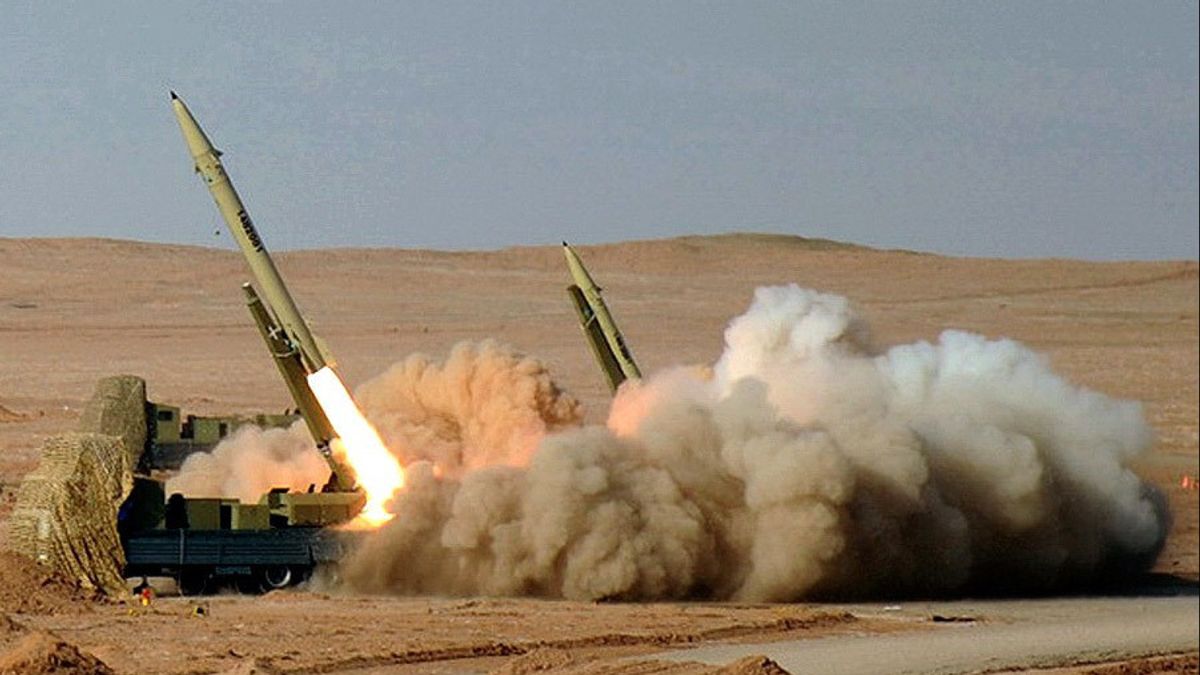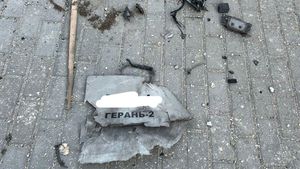JAKARTA - Senior Iranian officials and diplomats say Iran has pledged to provide surface-to-surface ballistic missiles, in addition to more drones for Russia, a move deemed to trigger US anger and other Western powers.
It said there was an agreement agreed on October 6, when Iran's First Vice President Mohammad Mokhber, two senior Iranian Revolutionary Guards (IRGC) officials, and an official from the Supreme National Security Council visited Moscow to talk to Russia about arms shipments.
"Russia has asked for more Iranian drones and ballistic missiles with better accuracy, especially the family of Fateh and Zolfaghar missiles," said one of Iran's diplomats, briefed on the trip.
A Western official briefed on the matter confirmed it, saying there was an agreement between Iran and Russia to provide surface-to-surface short-range ballistic missiles, including Zolfaghar.
One of the Iranian-approved drones to supply is Shahed-136, a delta-wing weapon used as a "kamikaze" air-to-surface attack aircraft. It carries a small warhead that explodes during a collision.

Meanwhile, Fateh-110 and Zolfaghar are surface ballistic missiles to Iran's short-range surface capable of striking targets at distances between 300 km and 700 km (186 and 435 miles).
Iranian diplomats rejected Western officials' statement that such transfers violated UN Security Council 2015 resolutions.
"Where they are used is not a problem for sellers. We are impartial in the Ukraine crisis like the West. We want to end the crisis through diplomatic means," the diplomat said.
Previously, Ukraine had reported a spate of Russian attacks using Iranian-made Shahed-136 drones in recent weeks.
Iran's Foreign Ministry on Tuesday dismissed baseless reports about Iran supplying drones and other weapons to Russia for use in Ukraine, while the Kremlin on Tuesday denied its troops had used Iranian drones to attack Ukraine.
Asked if Russia had used Iranian drones in its campaign in Ukraine, Kremlin spokesman Dmitry Peskov said the Kremlin had no information about its use.
"Russian equipment with Russian nomenclatures is used. All further questions must be directed to the Ministry of Defense," Peskov said.
Separately, Rahim Safavi, a military adviser to Iran's Supreme Leader, was reported by state media on Tuesday that 22 countries wanted to buy Iranian drones.
"They (Russia) wanted to buy hundreds of our missiles, even medium-range missiles, but we told them we could immediately ship several hundred Zolfaghar and Fateh 110 short-range missiles, from surface to surface," said a security officer.
"I can't give you the right time, but soon, soon they will be delivered in two to three shipments."
Moscow specifically requested the short-range missiles Fateh 110 and Zolfaghar surface to surface, and deliveries will be made within a maximum of 10 days, another Iranian diplomat said.
VOIR éGALEMENT:
To note, Tehran has rejected President Vladimir Putin's request to supply Iran's advanced Arash 2 long-range attack drones last September, three Iranian officials told Reuters.
When asked the reason for his refusal, one of the officials mentioned several issues including "some technical issues".
"Also the Guard Commander (Revolutionary) is concerned that if Russia uses this Arash 2 drone in Ukraine, Americans may have access to our technology," the official said.
The English, Chinese, Japanese, Arabic, and French versions are automatically generated by the AI. So there may still be inaccuracies in translating, please always see Indonesian as our main language. (system supported by DigitalSiber.id)


















